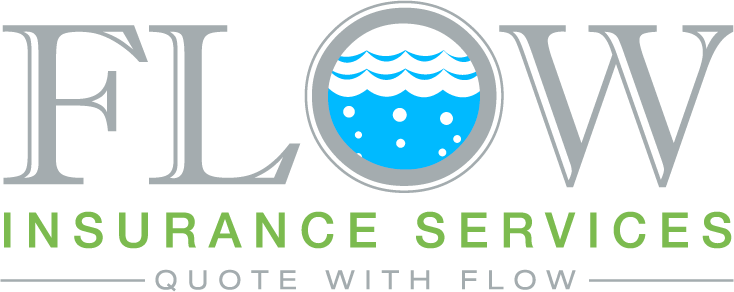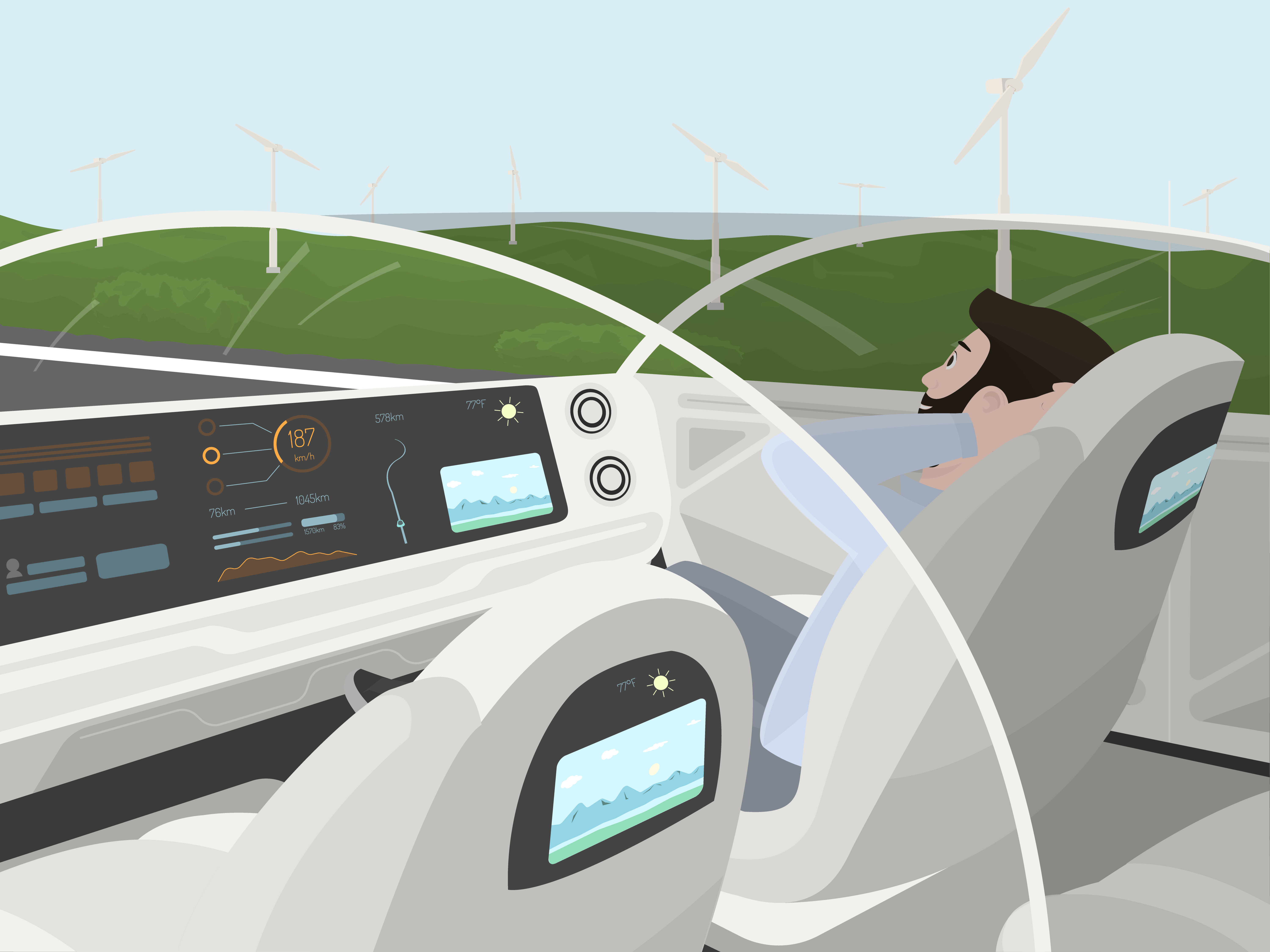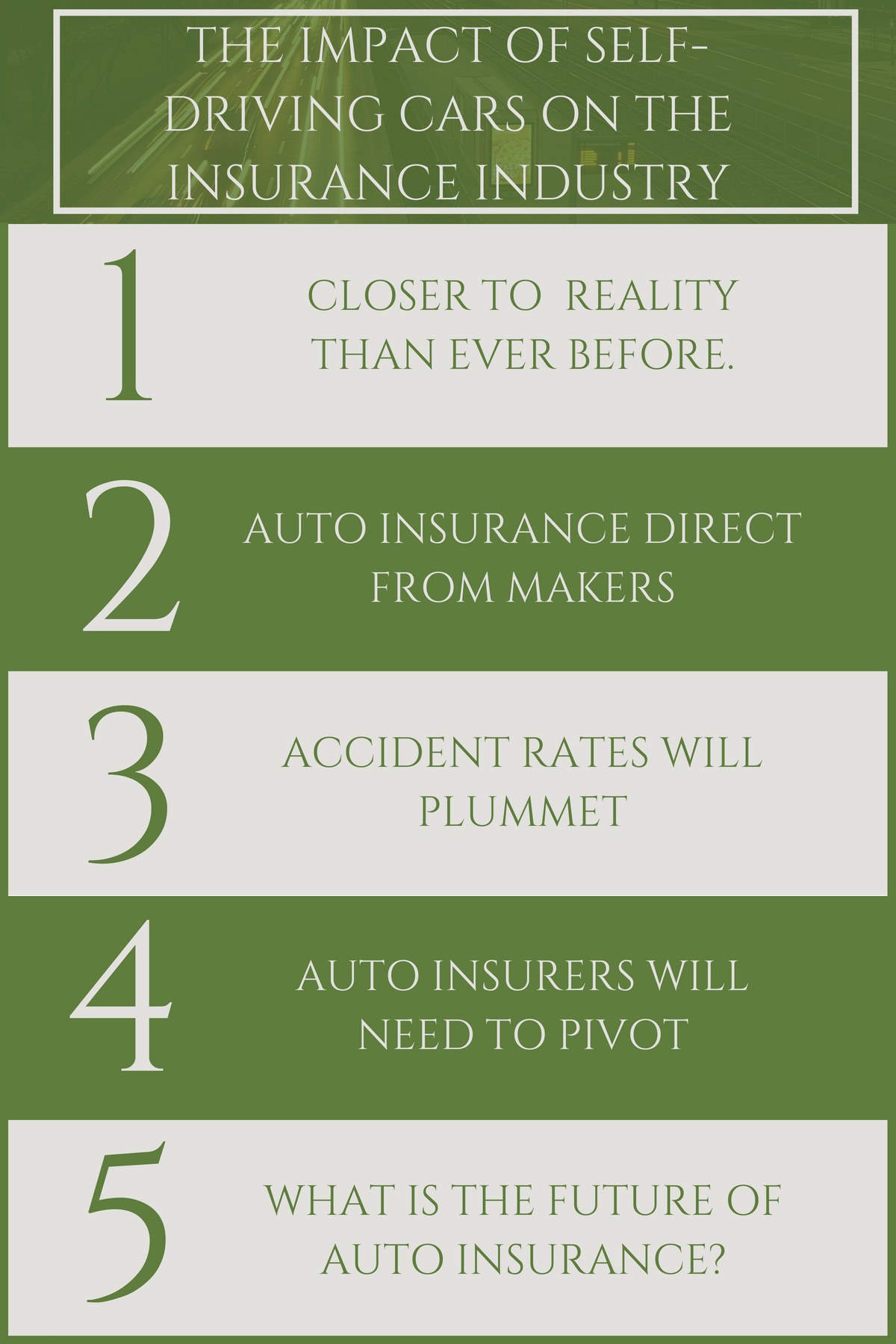21 Aug The Impact Of Self-Driving Cars On The Insurance Industry

855-368-5502
The Impact Of Self- Driving Cars On The Insurance Industry
By: Adam Matheny
Self-Driving Cars Are Closer To Going Mainstream Than Ever Before.
Some auto manufacturers are already running tests of self-driving cars where the cars interact with drivers and other cars. Recently, it was announced that GM will be starting production on a fully autonomous car in 2019. The car won’t even have a steering wheel or other tools for drivers to use if they had to intervene in an emergency. And Google has been using autonomous vehicles for awhile to capture data.
The applications for self-driving cars are practically unlimited. For things like transportation service, delivery of food or medicine, and many other tasks self-driving cars could revolutionize the way that people live. People who have limited mobility or don’t drive would have access to services and products that they don’t have now. But what would fleets of self-driving cars mixing with traditional vehicles and drivers on city streets be like for the insurance industry?

Auto Insurance Direct From Makers
When a car company makes an autonomous vehicle, they must assume the liability for that vehicle and any accidents caused by that vehicle. While this isn’t the case yet, it’s a safe bet that this is the way that the industry is headed. Three companies, Google, Volvo and Mercedes-Benz, already accept liability when any aspect of the vehicle’s self-driving system is responsible for a crash. Tesla offers insurance coverage to those who purchase a Tesla vehicle. It’s a pretty safe assumption that as self-driving cars become more and more common and the technology that drives them becomes more reliable vehicle manufacturers will start to be the ones offering insurance on their vehicles.
Accident Rates Will Plummet
One of the reasons why companies are so interested in the development of self-driving vehicles is that the mainstream use of self-driving cars will drive down accident rates. Currently, more than 94% of auto accidents are caused by human error. Taking the humans out of vehicles, except as passengers, should make accident rates drop sharply. This will drive down premium costs as the risks of auto accidents will decline. Safer cars are great for public health and safety but not great for the companies that insure those drivers. If the trend towards autonomous cars continues and those cars become better drivers than humans, insurance companies will need to lower premiums or risk losing customers to competitors who will better understand how to appropriate rate for autonomous vehicles.
Auto Insurers Will Need To Pivot
It’s possible that as self-driving cars become the norm for consumers people will carry less insurance. Autonomous cars are safer and more reliable than human drivers. As such, states may stop requiring car owners to carry insurance or car owners may just choose to not have any coverage except the bare minimum coverage required by the state law. If that happens auto insurers will have to pivot and find new ways to provide useful coverage to consumers so that consumers will want to keep the coverage that they currently have on their vehicles.
Uninsured drivers are a big problem for the auto insurance industry and for consumers that carry insurance but if the use of self-driving cars becomes widespread it may be that motorists no longer need to carry extra insurance to cover themselves from damages caused by uninsured drivers. The auto industry leaders are keeping a sharp eye on the development of self-driving cars so that they can identify any coming changes in coverage trends early on and pivot their focus to protect themselves.

